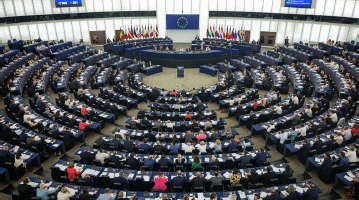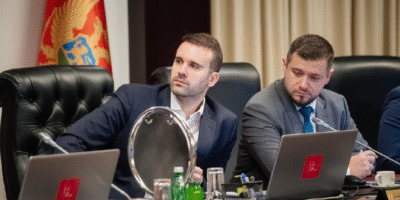Hate speech in Montenegro is becoming an everyday occurrence, especially in the online space, while institutional responses remain insufficient and inconsistent, warned the Centre for Civic Education (CGO) on June 18, the International Day for Countering Hate Speech.
Maja Marinović, a program associate at CGO, stated that hate speech tends to escalate during social crises or times of pronounced disagreement.
She highlighted that this was evident during events like the Cetinje tragedy, when online portals and social media were flooded with inappropriate and dehumanizing comments. Women expressing views different from the dominant narrative also face waves of misogyny and hate speech online.
“There is often only a small step from unpunished online content to actual discriminatory attacks,” Marinović added.
She pointed to CGO’s publications like “Digital Activism Against Hate Speech” a manual addressing e-homophobia, biphobia, transphobia, and digital violence and “On the Other Side of the Keyboard”, which examines hate speech through legal, civil, and practical perspectives, as efforts to raise awareness and empower individuals and organizations.
Marinović also expressed concern that hate speech increasingly comes from elected officials.
“Statements with open discrimination, homophobia, and misogyny such as one recently made in the Capital City Assembly by Mitar Šušić not only contradict fundamental human rights values but also border on illegality and demand unequivocal condemnation by all political actors,” she said.
She recalled the words of UN High Commissioner for Human Rights, Volker Türk, during his visit to Montenegro. He emphasized the importance of open and inclusive dialogue particularly in a country like Montenegro, rich in ethnic, religious, and linguistic diversity.
“That’s why I’m concerned about hate speech and the divisions driven by such narratives on television, online, at sports events, and even in schools,” Türk said, noting that some politicians resort to divisive rhetoric, and at times open hate speech, for political purposes.
According to CGO, its research shows that over 60% of Montenegrin citizens view political parties and their bot networks as the main sources of online hate speech.
“One-third of respondents do not report such speech due to distrust in institutions, and over a quarter lack faith in the effectiveness of media and social network self-regulation,” the statement added.
Marinović said that although laws do provide for the sanctioning of hate speech, enforcement is rare, ineffective, and inconsistent.
She noted this reveals a low level of digital and media literacy, calling for educational campaigns, legal reform, and stronger institutional capacity to better protect against digital threats key goals of CGO’s new project “Protection of Rights and Promotion of Digital Citizenship – Montenegrin Digital Shield (MDS)”.
“Fighting hate speech is not only a legal issue, but also a broader societal and political matter,” Marinović emphasized.
CGO called on institutions and public figures from all sectors to lead by example and promote responsible and respectful communication, as they play a vital role in shaping public discourse.
Written by our correspondent A.A.



